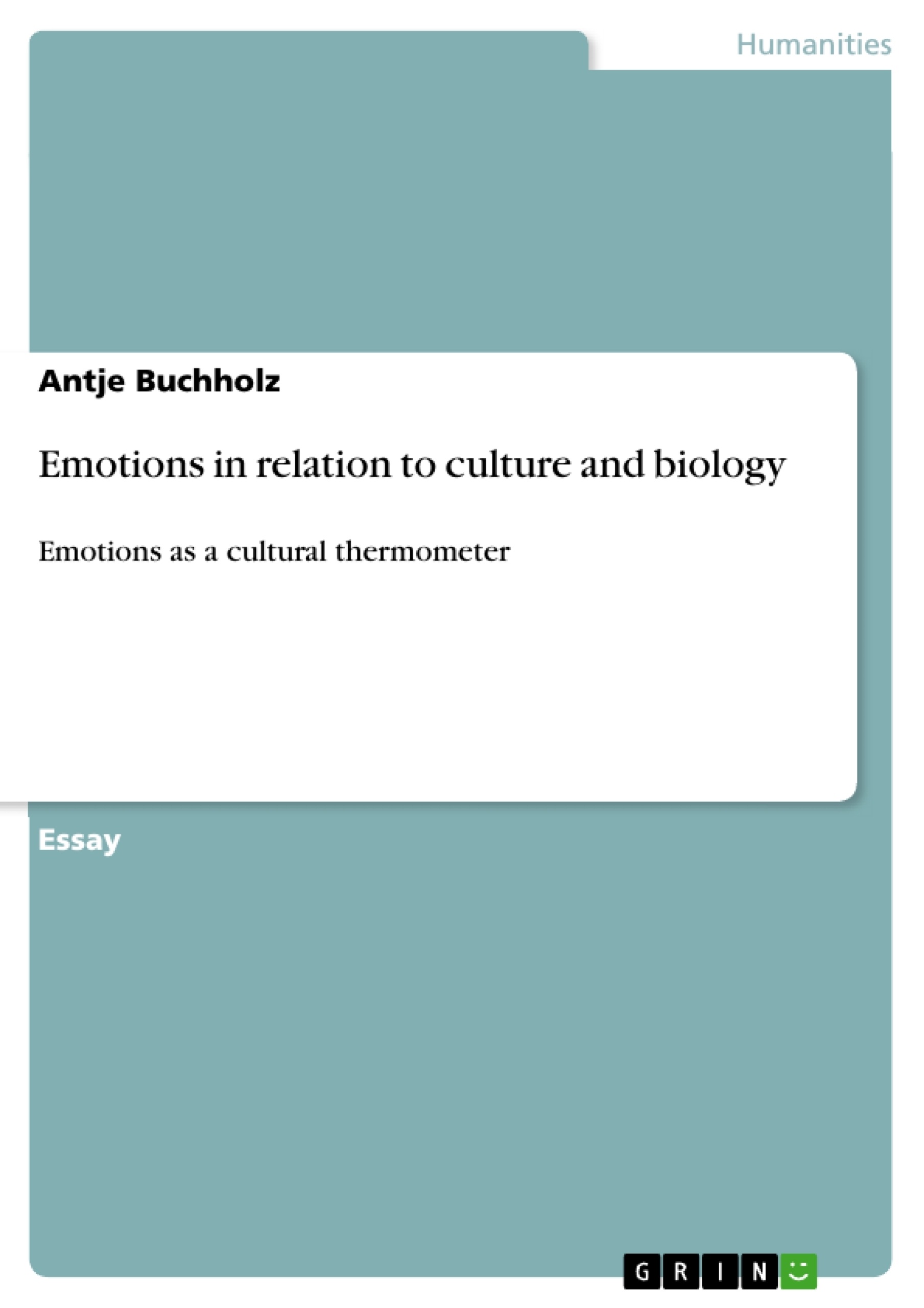Happiness, anger, disgust, fear, sadness, shame and guilt – these are emotions that every human can feel. These feelings are expressed differently in different cultures. Emotions can be imagined as a thermometer. It is filled with the feelings but the rate of the expression is based on the cultural and ordinary habits. As an anthropologist you are during your field work probably going to go through a lot of emotions, both from the research but also personally.
Inhaltsverzeichnis (Table of Contents)
- Emotion
- Emotion as a Cultural Thermometer
- Fieldwork and Emotional Labour
Zielsetzung und Themenschwerpunkte (Objectives and Key Themes)
This text explores the relationship between emotions and culture, examining how different cultures express and interpret emotions. The author aims to shed light on the cultural influences on emotional expression and the challenges of studying emotions in anthropological fieldwork.
- The cultural relativity of emotions
- The interplay between biology and culture in shaping emotions
- The challenges of studying emotions in anthropological fieldwork
- The impact of emotional labor on research outcomes
- The importance of understanding the cultural context of emotions
Zusammenfassung der Kapitel (Chapter Summaries)
- Emotion: This chapter introduces the concept of emotions and their cultural variations. It uses the example of shame to illustrate how different cultures express and perceive the same emotion differently. The author argues that emotions can be seen as a cultural thermometer, reflecting the values and norms of a society.
- Emotion as a Cultural Thermometer: This chapter delves deeper into the cultural dimensions of emotions, discussing the debate between universal and culturally constructed emotions. It examines the work of anthropologist Jean Briggs, who studied the Inuits in northern Canada, to illustrate the challenges of studying emotions in different cultural contexts. The author highlights the importance of considering both biological and cultural influences on emotions.
- Fieldwork and Emotional Labour: This chapter focuses on the emotional challenges of anthropological fieldwork. The author discusses the emotional rollercoaster that researchers experience during fieldwork, including feelings of loneliness, frustration, and excitement. The chapter also explores the concept of emotional labor, emphasizing how the researcher's own emotions can influence the research process and the expression of emotions by research participants.
Schlüsselwörter (Keywords)
This text examines the concept of emotions in relation to culture and biology, exploring themes such as cultural relativity, universal and culturally constructed emotions, anthropological fieldwork, emotional labor, and the challenges of studying emotions across cultures.
Frequently Asked Questions
Are emotions universal or culturally constructed?
While basic emotions like happiness or fear are biological, their expression and interpretation vary significantly across cultures, acting like a "cultural thermometer."
What is "emotional labor" in anthropological fieldwork?
Emotional labor refers to the effort researchers make to manage their own feelings and expressions to fit the cultural context of their study and build rapport with participants.
How does culture affect the expression of shame?
The text uses shame to illustrate that what triggers this emotion and how it is displayed depends heavily on a society's specific values and norms.
Who was Jean Briggs and what did she contribute to the study of emotions?
Jean Briggs was an anthropologist who studied the Inuit. Her work highlighted the challenges of understanding emotions in a culture where emotional displays are very different from Western habits.
Why is the cultural context important for understanding emotions?
Without understanding the context, an outsider might misinterpret emotional signals, leading to flawed research findings and social misunderstandings.
- Citation du texte
- Antje Buchholz (Auteur), 2012, Emotions in relation to culture and biology, Munich, GRIN Verlag, https://www.grin.com/document/213482



